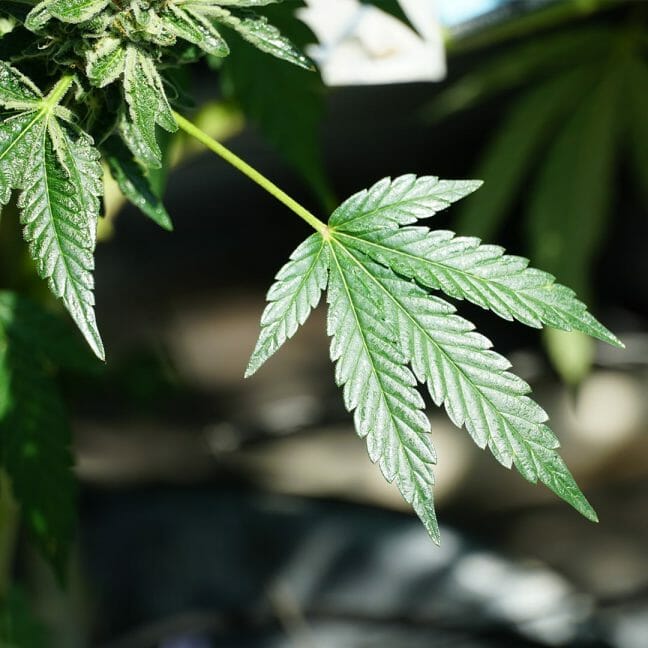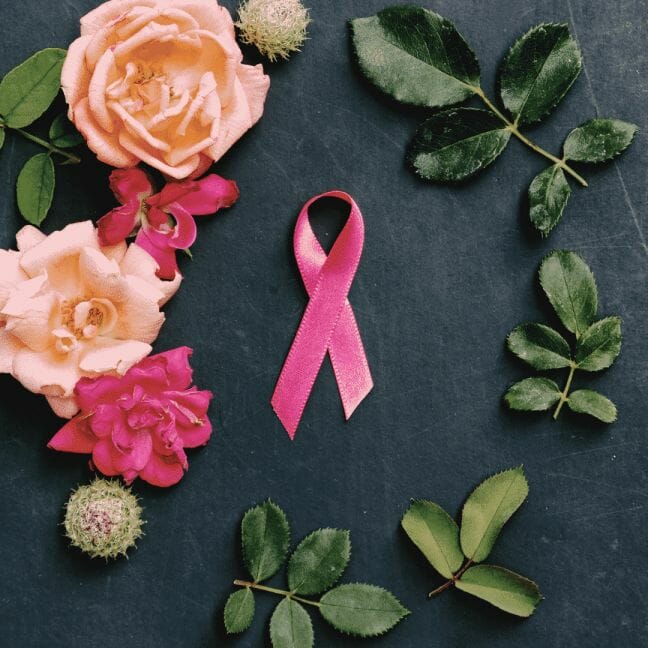
Guest Post by Mandy McGaugh of Heart to Hand
Did you know that breast cancer researchers are currently investigating potential roles that could play in the prevention of breast cancer? Preliminary research suggests that cannabinoids work to reduce proliferation of cancer by interfering with cancer cell migration. CBD, specifically, shows promise in preventing angiogenesis, the formulation of new blood vessels which provide cancerous tumors with oxygen and nutrients. It looks like CBD could inhibit this process! Additionally, there seem to be synergistic interactions of CBD and THC that researchers are excited to explore for their potential anti-cancerous effects, along with other, lesser known cannabinoids, such as CBDA, CBG, and CBN.
Alarmingly, breast cancer diagnoses have fallen in steep decline throughout 2020 and not because the incidence of cancer has actually decreased. It is the diagnosis process that has been disrupted during the lockdowns of the CoVid-19 pandemic, delaying potential early detections of cancer through routine screenings and, ultimately, leading to what may result in a rise of late-stage advanced cancer diagnoses.



One way cannabis may support conscious consumers in early detection (in addition to its anti-proliferative effects) is by combining consumption with a routine self-care practice of therapeutic breast massage and self-exams. Acting on the endocannabinoid system, cannabis effectively downregulates the nervous system, facilitating a sense of relaxation and relief from stress. This state of mind is ideal for entering into a practice of self-massage and, most importantly, self-breast exams, as cannabis can soften any latent resistance around self-touch due to fears of what may be detected in a self-exam.
Blending self-exams with cannabis, whether with CBD skincare, full spectrum topicals, or the euphoric effects of THC, can be conducive to expanding self-awareness by diminishing anxiety and simultaneously increasing kinesthetic perception. Often, the fears we subconsciously hold around what may be discovered through a breast exam, combined with the lack of understanding of how to properly perform an exam, can inevitably contribute to avoiding doing them altogether. Conscious cannabis consumption, paired with informed self-massage for breast and lymphatic health, can support you in integrating a healthful ritual of self-exam into your ongoing self-care practices.
In this time of immense, widespread touch deprivation and decreased interactions with medical care providers, cannabis can infuse this valuable self-care and breast cancer prevention practice with an attentive gentleness and even pleasure, while simultaneously helping you to build a baseline understanding of your unique breast tissue.
Try either the Check Your Self or Know Your Lemons apps, as these are both free resources you may download to your phone with step-by-step demonstrations of self-exams, along with monthly reminders in an amusing format. Combine this with your favorite high-quality Farmacy topical and you’ll be well on your way to conscious consumption for breast cancer prevention.

Written by Mandy McGaugh of Heart to Hand.
Holistic Health Practitioner, Medical Cannabis Advocate, and metastatic breast cancer survivor/thriver. To work with Mandy or learn more go to www.hearttohand.love!
To learn more about Cannabis and Breast Cancer, join Mandy’s Virtual Webinar tonight! Click here to register!
Resources:
Massi, Paola et al., (2013), Cannabidiol as potential anticancer drug, British Journal of Clinical Pharmacology, 75 no. 2, 303-312, https://bpspubs.onlinelibrary.wiley.com/doi/full/10.1111/j.1365-2125.2012.04298.x
Solinas, M et al., (2012), Cannabidiol inhibits angiogenesis by multiple mechanisms, British Journal of Pharmacology, 167 no. 6, 1218-1231, https://bpspubs.onlinelibrary.wiley.com/doi/full/10.1111/j.1476-5381.2012.02050.x
Fraguas-Sanchez, A.I. et al, (2016), Phyto-, endo-, and synthetic cannabinoids: promising chemotherapeutic agents in the treatment of breast and prostate carcinomas, expert opinion in Investigational Drugs, 25 no. 11, 1311-1323, https://www.tandfonline.com/doi/abs/10.1080/13543784.2016.1236913?journalCode=ieid20
Scott, K. A. et al., (2013) Enhancing the activity of cannabidiol and other cannabinoids in vitro through modifications to drug combinations and treatment schedules, Anticancer Research, 33 no. 10 4373-80
Konieczny, Eileen, & Wilson, Lauren (2018). Healing with CBD, Ulysses Press


